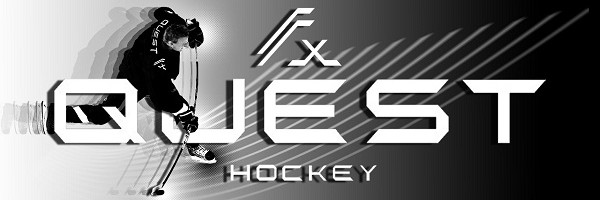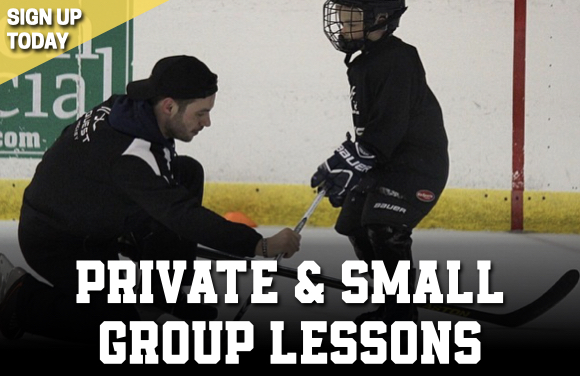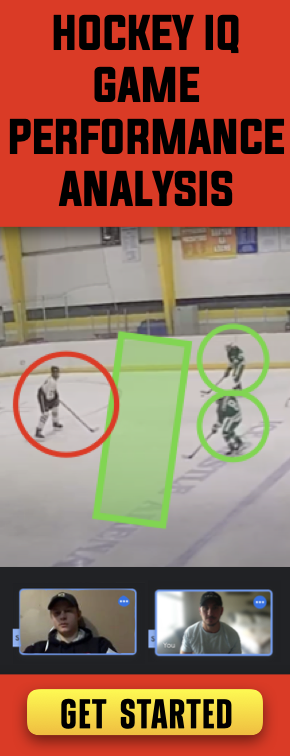
Player Development: Observations and Recommendations to Coaches and Organizations
September 7, 2012
Quest Hockey officially started our on-ice skill development programs in December of 2011 with our first power skating program at the Rostraver Ice Gardens. Ten months later, after having the pleasure to work with hundreds of players and numerous coaches, teams and organizations throughout the Pittsburgh area, we would like to take this opportunity to share our observations and make recommendations based on those observations.
Observations:
 Too many games, not enough practices.
Too many games, not enough practices.
Most teams have 2 practices during the week followed by 2 to 3 games over the weekend. A 2:2 or 2:3 practice-to-game ratio is too low to develop the skills of our players.
Skills are developed during practice and skill development training, not games! [See The Numbers’ Game]
 Too much X & O and not enough skill development training during practice.
Too much X & O and not enough skill development training during practice.
Skills must be developed to a point where players are then able to implement game type instruction.
For example, it doesn’t make sense to have a team work on the umbrella power play if the players on that team don’t have the ability to receive and give passes and control the puck on a consistent basis. Otherwise, the drill will consist of missed or deflected passes and little puck possession, which does not develop the skills of our players.
 Skill development training works!
Skill development training works!
By isolating fundamental skills and building a progressive growth model based on the exercises each player is able to do, a players’ skills are developed over time.
 Skill development is a process.
Skill development is a process.

Skills are developed over time by training from a competent person with experience in the particular field. Players’ hockey skills [skating, passing, shooting & stickhandling/puck control] must consistently be worked on, assessed and built upon to progress and develop.
Wins, losses, goals, assists, plus/minus, etc. are less important, particularly for younger players, than whether they can receive a pass on their backhand or properly use their edges when skating.
Result oriented thinking is short term thinking and puts pressure on players and teams to perform. Allow your players to have fun and develop their skills to become better hockey players in the long run.
 Skill development training is fun!
Skill development training is fun!
Players genuinely enjoy skill development training, become more confident on the ice and have more fun playing this great game as a result of their improvement.
Recommendations to Youth Hockey Organizations and Coaches:
 Increase each team’s practice-to-game ratio to 4:1 or 3:1 at minimum.
Increase each team’s practice-to-game ratio to 4:1 or 3:1 at minimum.
We understand this may be difficult to do at this time of the year with ice already purchased for the season. However, anything to increase the practice and skill development training aspect of your team’s work-out’s is desirable. See The Right Practice-To-Game Ratio is Just Desserts for Skill Development
Consider converting scrimmages to skill development training sessions to increase your practice-to-game ratio. Also, keep in mind that skill development training sessions can be accomplished off of the ice and can be easily added to your existing schedule.
 Increase the percentage of practice time dedicated to skill development training.
Increase the percentage of practice time dedicated to skill development training.
Teach X’s and O’s, which consists of a lot of standing around, on a sport court or by reviewing video of game footage with the team. Take advantage of your limited ice time to focus on skill development!
 Inform parents and players of skill development training .
Inform parents and players of skill development training .
Quest Hockey has a number of skill development options to help develop and grow your players’ skills while having fun!
 Schedule regular on & off-ice skill development team practices throughout the season.
Schedule regular on & off-ice skill development team practices throughout the season.
Consistent and regular skill development team practices allow us to monitor the development of each player and the team as a whole. In the long-run this leads to constant improvement throughout the year.
Email us at info@QuestHockey.com to formulate a plan for your players/teams!


